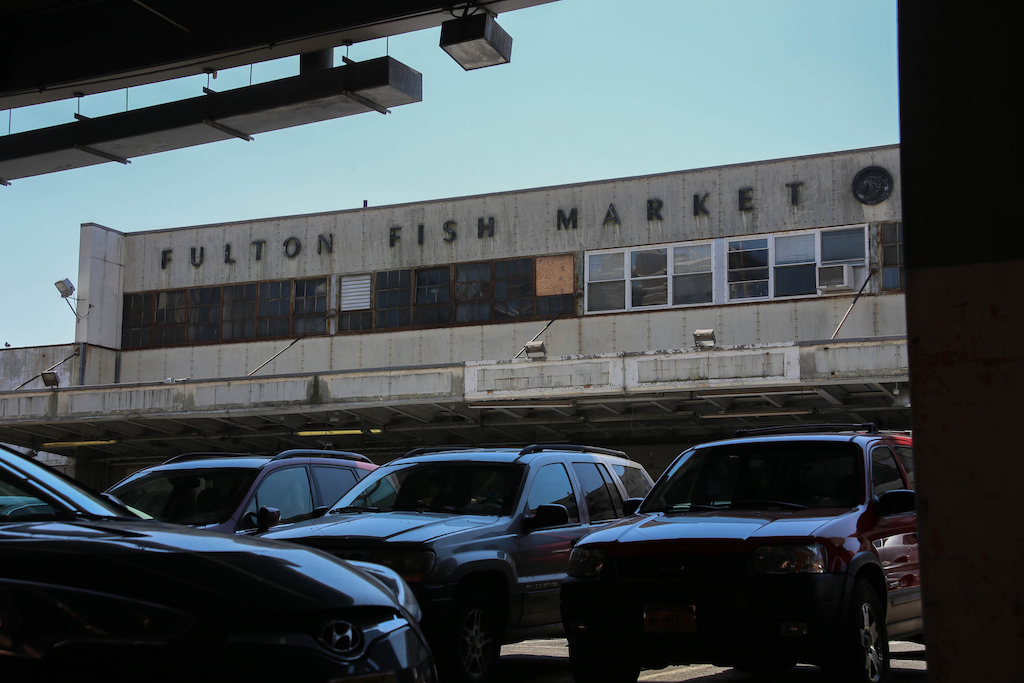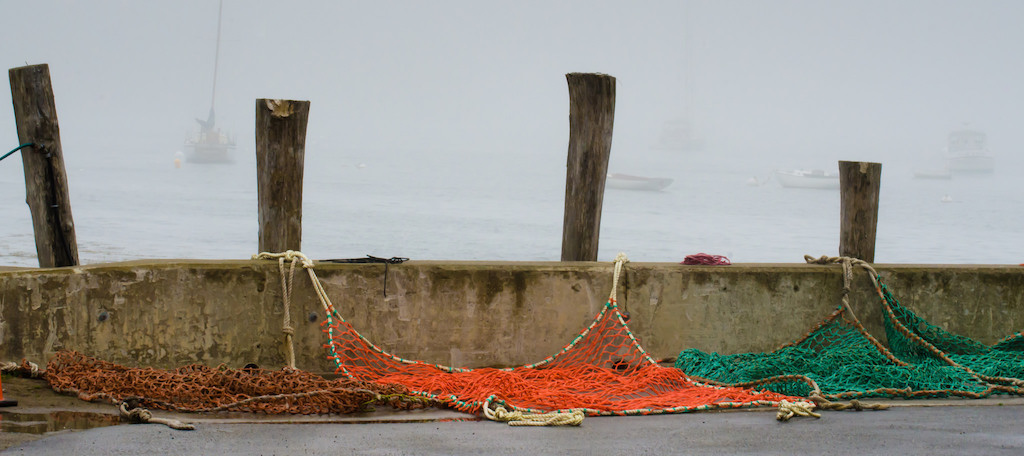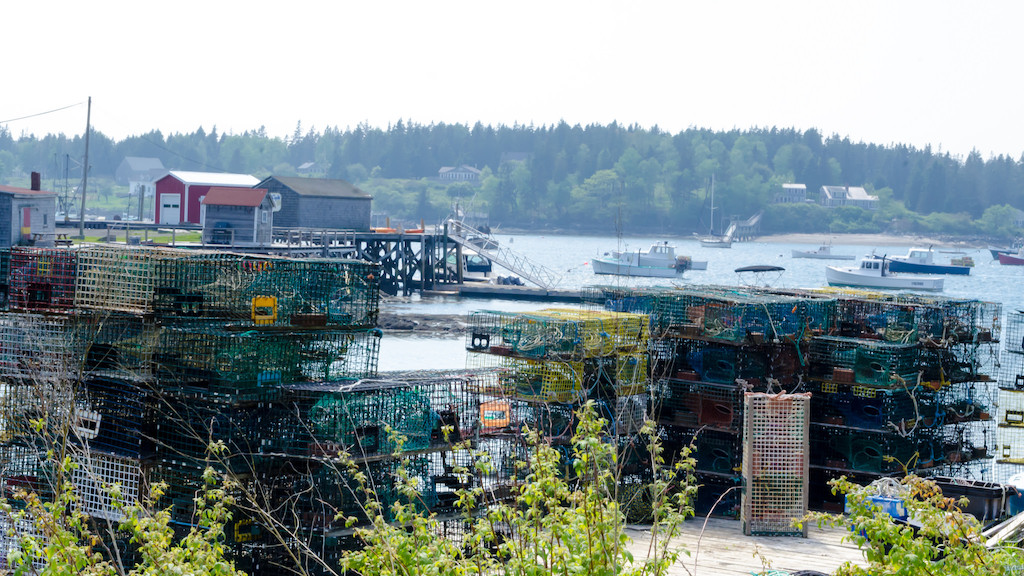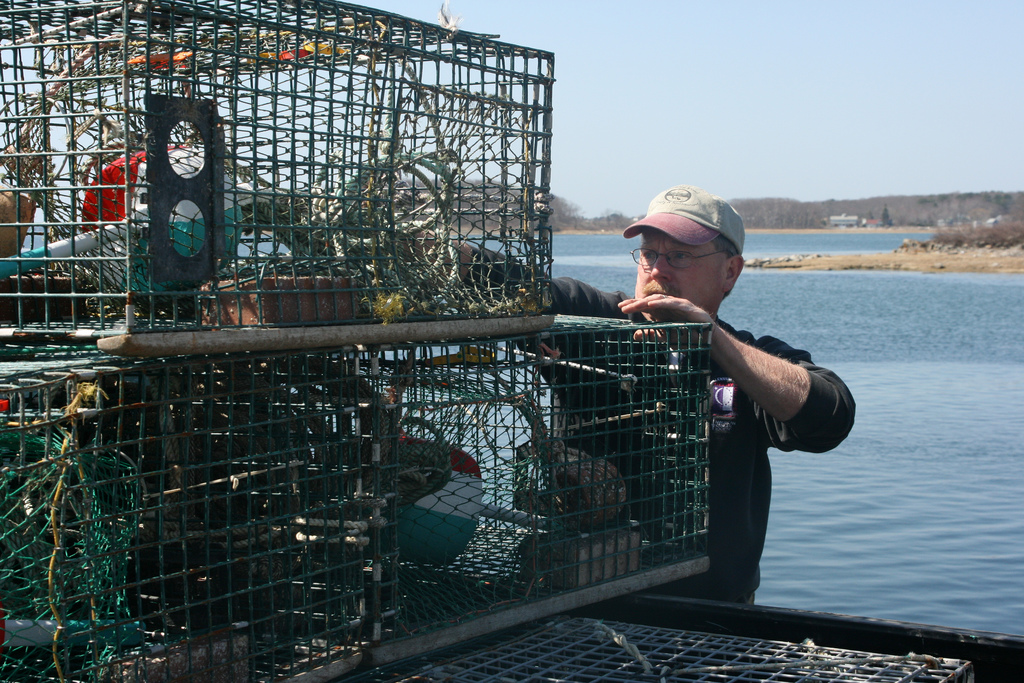In addition, CSF’s sell wild-caught seafood only. Subscribers to a CSF “should never receive imported or farmed seafood,” the letter specifies. Fultonfishmarket.com says on its website that it does sell farmed fish.
CSF’s encourage eaters to minimize food waste and utilize whole fish. Fultonfishmarket.com delivers seafood “filleted, portioned, scaled.”
Other principles are more nebulous and aspirational, like “eating with the ecosystem” or “creativity and collaboration.”
But such values, however well-meaning, do not a concrete criteria make, and for that reason, the model of a CSF is vulnerable to misappropriation. Which is exactly what Local Catch fishermen and advocacy organizations are accusing Fultonfishmarket.com of doing.
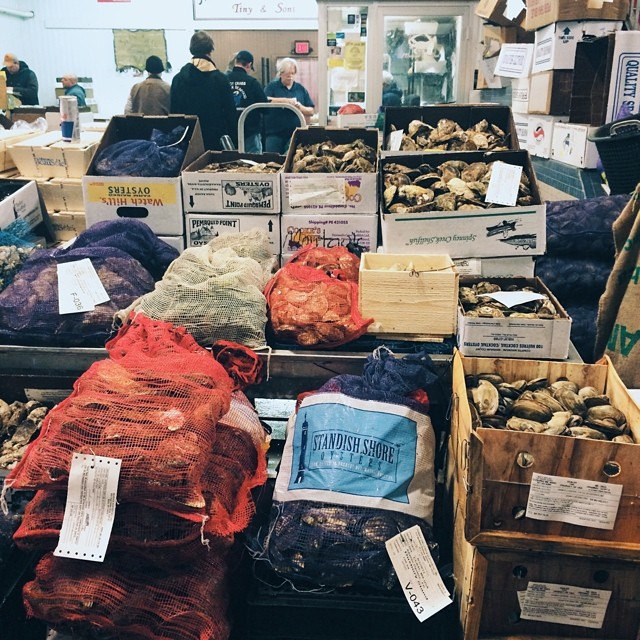
Flickr / pangeashellfish
“Unless there is a fundamental shift in how Fulton Fish Market engages with the fishing industry through this, then all that is is greenwashing.”
A 2016 survey commissioned by the Marine Stewardship Council reported that 4 out of 5 households purchasing seafood are concerned with ocean sustainability.
Fultonfishmarket.com justifies its marketing with the argument that “everyone in the United States—not just coastal communities—should have access to the bounties of our local water and the health benefits of eating fresh, healthy seafood.”
According to FultonFishMarket.com’s definition of the term, “local” refers to all fish caught within 200 miles of the U.S. coast, the boundary within which federal fishing rules govern.
That’s too broad, says Stoll.
How should this impact well-meaning shoppers in the grocery aisle?
“What specific and concrete benefit does the fishing community get from the community-supported fishery? I would say buying domestic seafood doesn’t fall into that category. That is too superficial. Unless there is a fundamental shift in how Fulton Fish Market engages with the fishing industry through this, then all that is is greenwashing,” he says.
The letter is demanding that Fultonfishmarket.com stop marketing itself as a CSF. Brett Tolley of the Northwest Atlantic Marine Alliance (NAMA) argues that currently, the startup misleads eaters, waters down the impact of the CSF label, and reduces consumer confidence overall.
“It’s fine if they want to sell their seafood more directly to the public,” Tolley says. ”We’re just saying don’t call it a ‘community-supported fishery’ because that confuses people and it undermines the model that we’re trying to build.”
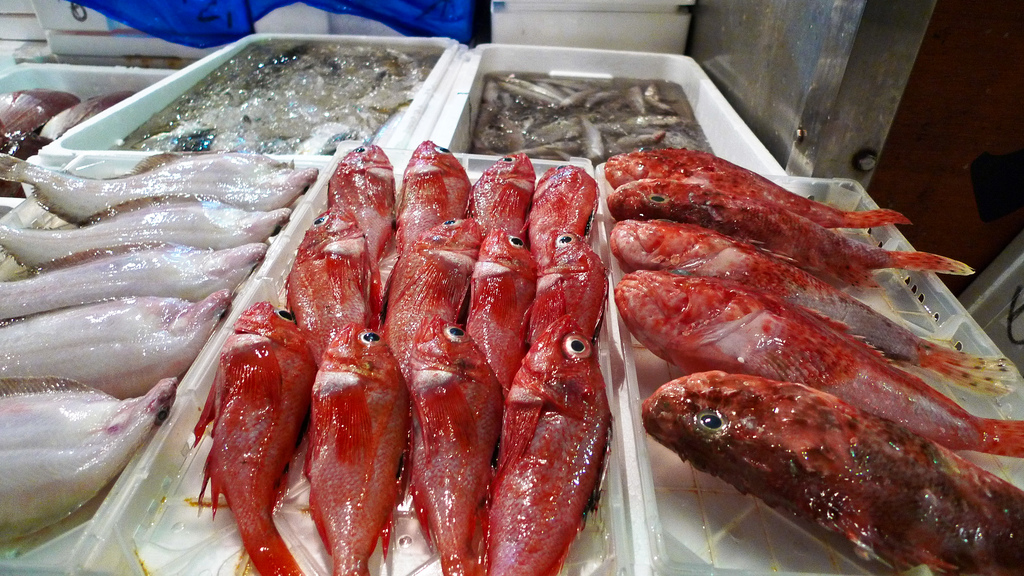
Flickr / jkhendriks
If one link in the seafood chain violates the agreed-upon values of CSF’s, how can the company truthfully lay claim to the model in any capacity?
Ultimately, how should this impact well-meaning shoppers in the grocery aisle?
Ben Martens, Executive Director of the Maine Coast Fishermen’s Association, has a suggestion.
“What you should be doing is trying to get fish from fishermen that are as close to you as possible, from fishermen as close to the source as possible.”
And for those who don’t live in or near fishing communities?
“All the seafood that is landed and sustainably harvested in the United States, is all based upon scientifically-set catch limits and you should always feel good about eating local, eating U.S. seafood, and that should really be the benchmark for what you’re going out and trying to eat,” says Martens, warning that confused consumers will only lead to more people eschewing seafood altogether.

screenshot of Fultonfishmarket.com
Fultonfishmarket.com repeatedly declined requests to comment on the record
“What we’ve seen with local consumers around Maine is that the big questions that kind of hang over local fish and ‘what I should be eating?’ and ‘what I shouldn’t be eating?’—it doesn’t cause people to make better decisions, it causes people to not make a decision and instead pick up a chicken breast or a steak and ignore fish.”
Fultonfishmarket.com has since responded to the letter and changed some of its marketing language, claiming that it is just a CSF supplier, but not itself a CSF. Regardless, if one link in the seafood chain violates the agreed-upon values of CSF’s, how can the company truthfully lay claim to the model in any capacity?
Fultonfishmarket.com repeatedly declined requests to comment on the record. As of today, it still has “Fulton Fish Market Community Supported Fishery” splashed across its website.
